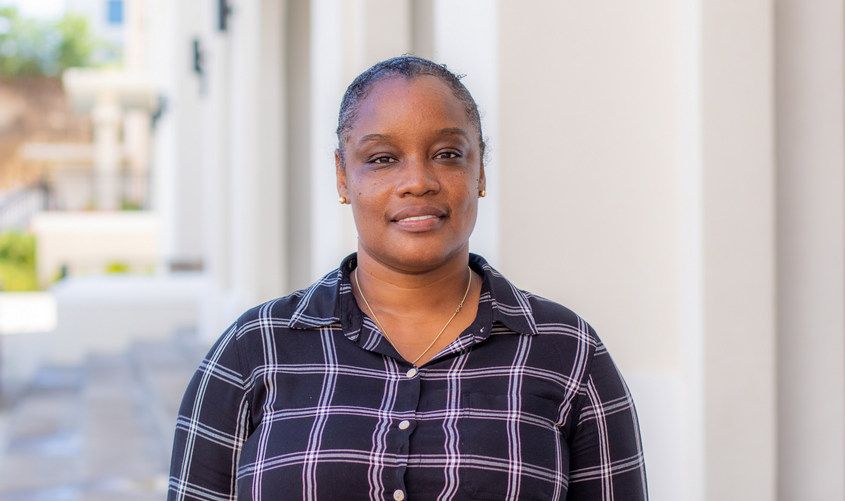Successful physicians are not only strong diagnosticians and skillful when it comes to offering solutions to their patients’ ailments and illnesses, but they are also exceptional communicators.
This month’s faculty spotlight is on Dr. Anna Cyrus-Murden, the deputy chair and assistant professor of the School of Medicine’s Department of Clinical Skills. She is also the director of the Simulation Center. Since the onset of the COVID-19 pandemic, Dr. Cyrus-Murden has been responsible for organizing and implementing online clinical skills solutions for all terms.
She discussed with SGU News the importance of medical students learning to be proficient in clinical skills, so they are aptly prepared for their clinical rotations.
St. George’s University: What are some key clinical skills that are taught to SGU students?
Dr. Cyrus-Murden: Competency in clinical skills best occurs as an integrated and longitudinal educational process, meaning that clinical skills development must occupy a central position in medical education. As students obtain exposure to an incrementally challenging skills curriculum, they have the opportunity to progressively master that set of skills.
SGU emphasizes a patient-centered approach to patient care. As the name indicates, most of the student experiences are designed to be hands-on, including via small groups and hospital SIM lab visits, to offer students the opportunity to develop and become competent of their clinical skills.
In Clinical Skills (CS), students are taught to:
- Develop their communication and interpersonal skills with patients, families, and other members of the care team, and examine patients;
- Develop clinical reasoning skills;
- Document findings from a patient encounter; and
- Understand the important role of the doctor-patient relationship in patient care.
SGU: Why is it important to learn these soft skills before students start clinical rotations?
Dr. Cyrus-Murden: It is of the utmost importance for students to learn an effective communication skillset so that they can establish a strong patient-provider relationship that can positively influence patient satisfaction, cooperation, and health outcomes.
SGU: What are some best practices when it comes to speaking with patients?
Dr. Cyrus-Murden: Students should be able to:
- Communicate and engage with patients to build a physician-patient relationship for the purposes of information gathering, guidance, education and support;
- Demonstrate empathy and professional behavior throughout the encounter;
- Consider the determinants of health when obtaining an appropriate history;
- Use effective and empathic verbal and nonverbal communication (and avoid the use of medical jargon);
- Verify the patient’s understanding and validate the patient’s concerns; and finally,
- Summarize the clinical information and intended plan of action.
SGU: How have these skills been taught/measured in a virtual setting?
Dr. Cyrus-Murden: Creating online solutions for learning clinical skills as well as developing an online alternative for in-person OSCEs (objective structured clinical examinations) took primary importance in the early days of the pandemic. I was among the clinical skills team at SGU who successfully developed and implemented the Online Clinical Evaluation Exercise (OCEX) at SGU— an online alternative to OSCE.
We are using telemedicine cases as an alternative to the hospital/clinic visits, where students can interview real patients in real time—similar to virtual rounds—and virtually “shadow” physicians to perform their patient encounters. From this experience, they are able to gather enough information to develop a preliminary differential diagnosis and a diagnostic workup plan, as well as begin to develop an effective physician-patient relationship.
SGU: With the emergence of COVID-19, how has telemedicine become an important aspect of clinical skills training?
Dr. Cyrus-Murden: The unprecedented impact of the COVID-19 pandemic has introduced a host of challenges for physicians. As a result, telemedicine, in many cases, is now conducted in lieu of hospital or doctor visits. Learning effective telemedicine strategies will provide students with the confidence to utilize this tool in their future practices and permits students to go beyond geographic and socioeconomic boundaries to deliver high-quality care to in-need patients. Telemedicine has become a necessary alternative to conventional acute, chronic, and preventive care.
–Laurie Chartorynsky


